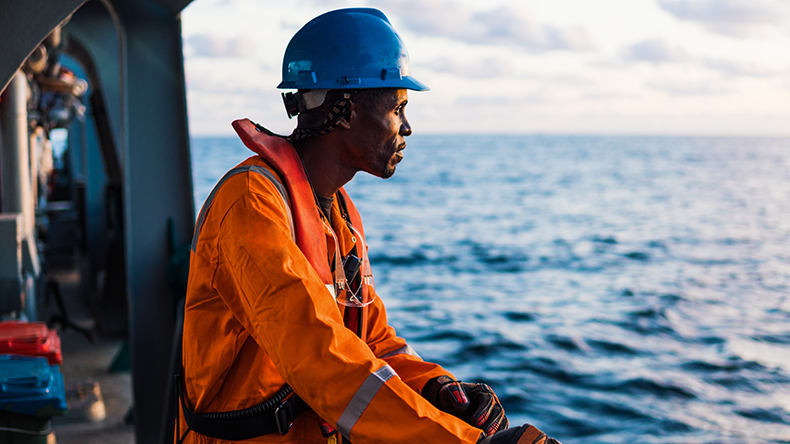Seafarers: The Forgotten Key Workers of the Pandemic?
Posted on 07 Jan 2021 by Myles Anderson

Disclaimer: The views expressed below are that of the individual author.
“We are deeply indebted to all the key workers, the heroes of this uneven battle, the doctors, the nurses, the scientists and others, but also to our seafarers who work tirelessly day and night during the pandemic”
Currently, it is estimated that 400,000 seafarers are stuck at sea, 2,000 of those are from the UK, and many crew members have been retained onboard vessels for in excess of 18 months. The law in this area is clear, the ILO’s 2006 Maritime Labour Convention sets an 11-month maximum period that seafarers can be onboard for without leave. Regulation 2.5 states that seafarers have a right to be repatriated at the end of their contract and that flag states and port states have a responsibility to ensure this. This article explores the real stories of seafarers’ experiences during the pandemic and then looks to the future exploring what needs to be done to protect these workers.
The plight of seafarers during the pandemic
The general condition of seafarers during the pandemic is illustrated by a survey of 926 crew members by the International Transport Workers’ Federation. They found that 26% of respondents had been onboard vessels for more than the legal maximum. The respondents were asked to rate (from 0 to 10) the possibility of an “accident that could harm human life, property, or the marine environment due to tiredness or fatigue”. 71% chose 5 or higher, while 25% chose 10. Furthermore, 30% of respondents had unmet medical needs. The individual stories told by seafarers to various news sources bring harrowing experiences of seafarers during the pandemic to light.
The situation of Alexey Kulibaba was particularly disturbing. He had suffered a stroke and was exhibiting signs of confusion and paralysis of his left arm and leg. The vessel he was onboard requested a medical evacuation on the 18th April 2020, but this was denied by Indonesian officials. The seriousness of his condition was confirmed by a doctor from Global Voyager Assistance, but still Indonesian authorities refused a second request due to covid-19 restrictions. On the 19th April the crew received permission to enter the Indonesian Port of Belawen for a medical transport however this was later rescinded, and they were told to travel to Singapore. After intervention by the International Labour Organisation and the International Maritime Organisation, a medical examination of Kulibaba was finally provided on 20th April. Jacqueline Smith, the International Transport Workers’ Federation maritime coordinator highlighted that, “Covid-19 restrictions must not be used to deny seafarers the right to medical care and treatment, or countries obligations under international law”.
The treatment of the crew of the MT GULF SKY further demonstrates the appalling position seafarers have endured.After the vessel was stranded in UAE waters during the pandemic, 3rdEngineer Tandel Sujeetkumar described their ordeal; “We were arrested by Iranian hijacker from 5 July to 14 July those 10 days experience is very horrible for us because they kept us in one mesh room, we 28 people lived together in that small room. That is fine ok we are released anyhow, God bless. But now we are facing very worst situation because our documents are seized by UAE government we didn’t get salary and now without documents we can’t join ship now we are in very horrible situation all authorities doesn’t help us…”. The crew’s wages remain unpaid since March and total more than USD$197,000.
The BBC reported the case of an assistant engineer from the Philippines who was stuck on the same vessel for 16 months, having not been on land since a brief leave in August 2019. He has attempted to go home 3 times and has missed his own wedding. However, his attempts have been futile, thus evidencing a clear contravention of ILO’s 2006 Maritime Labour Convention- and a flagrant repudiation of human rights.
What needs to be done?
The priority for governments should be to ensure seafarers are able to travel home so that they can spend time over Christmas with their families. The Nautilus International Union wants crew to be classified as key workers in all countries to make it easier for them to fly home. This ambitionwas recognised in United Nations General Assembly (UNGA) Resolution on international cooperation to address challenges faced by seafarers as a result of the Covid-19 pandemic to support global supply chains, adopted on 1st December 2020. So far, the UK government along with 43 other countries have classified seafarers as key workers, but 130 other countries have not.
Designating seafarers as key workers will also go some way to giving priority to seafarers for a vaccination. The UNGA Resolution should give effect to this, as IMO Secretary-General, Kitack Lin comments, “I hope that the key worker designation will ensure that seafarers can be vaccinated expeditiously”. The Union of Greek Shipowners President, Theodore Veniamis also recognises that it is “of utmost importance that competent authorities give priority to seafarers in Covid-19 vaccination… This will ensure a Covid-19 free environment for seafarers… as well as the facilitation of crew changes and repatriations, which at the moment are seriously disrupted…”.
Concluding remarks
Seafarers have been working 10-12-hour shifts, 7 days a week throughout the pandemic. They have been stuck onboard vessels for months with no leave to visit friends and family. Without the service of seafarers, the supply chains that have kept us fed and medical equipment in stock would collapse. Despite their importance they are the forgotten people of the pandemic with few resolving to take responsibility for their safety,and a lack of political will to take their mental and physical well-being seriously. Designation of seafarers as key workers and priority for vaccination will go a long way in solving the issues of safety and repatriation within the industry.
Tags:
covid_19
/
worker_rights
/
human_rights
/